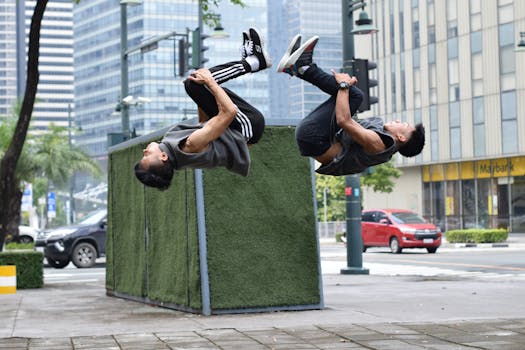Unlocking Mental Clarity: The Surprising Link Between Physical Fitness and Your Mind
Takeaways: Physical fitness is not just about looking good; it profoundly affects our mental clarity and overall well-being. Regular exercise can enhance cognitive function, boost mood, and improve focus. Incorporating movement into daily life can lead to a more productive and fulfilling lifestyle.
Have you ever noticed how a brisk walk or a quick jog can clear your head? It’s funny how something as simple as moving your body can have such a profound impact on your mind. Today, I want to dive into the fascinating connection between physical fitness and mental clarity. Trust me, you’ll want to stick around for this one!
Understanding the Mind-Body Connection
Let’s start by acknowledging something we all know deep down: our bodies and minds are interconnected. When one feels good, the other often follows suit. I remember a time when I was feeling particularly sluggish and unfocused. Life was just dragging along, and my productivity was at an all-time low. It wasn’t until I decided to hit the gym that I realized the power of physical activity.
Studies have shown that engaging in regular physical activity can lead to significant improvements in cognitive function. Exercise increases blood flow to the brain, which helps improve memory and thinking skills. Isn’t that amazing? I can personally attest to this! After a workout, I often find that my thoughts are clearer, and I can tackle my to-do list with renewed energy and focus.
The Science Behind It
But let’s get a bit nerdy for a second. What exactly happens in our brains when we exercise? When we engage in physical activity, our bodies release endorphins, often referred to as “feel-good” hormones. These chemicals not only elevate our mood but also help reduce stress and anxiety. It’s like a natural high that keeps us feeling motivated and focused!
Moreover, exercise promotes neurogenesis, which is the process of forming new neurons in the brain. This is crucial for learning and memory. When I’m consistent with my workouts, I can literally feel my brain getting sharper. Whether I’m brainstorming for work or just trying to remember where I left my keys, everything seems a little easier!
Practical Tips for Integrating Fitness into Your Life
Now, you might be wondering how to incorporate more physical activity into your daily routine. I totally get it; life gets busy! But trust me, it’s worth it. Here are some practical tips that have worked wonders for me:
- Start Small: If you’re new to exercise, begin with short workouts. Even a 10-minute walk can make a difference!
- Find What You Love: Whether it’s dancing, biking, or playing a sport, find an activity that excites you. You’re more likely to stick with it!
- Schedule It: Treat your workouts like important appointments. Block out time in your calendar to ensure you make it a priority.
- Buddy Up: Working out with a friend makes it more fun and keeps you accountable. Plus, you can motivate each other!
- Mix It Up: Keep things interesting by trying new classes or outdoor activities. Variety can help you stay engaged.
Incorporating fitness into your life doesn’t have to be daunting. It’s all about finding what works for you and slowly building it into your routine.
FAQs
1. How often should I exercise to see mental clarity benefits?

2. Can I improve mental clarity without intense workouts?
Absolutely! Moderate activities like walking, yoga, or even stretching can significantly improve mental clarity. It’s all about staying active!
3. What types of exercise are best for mental clarity?
Cardio exercises, strength training, and mind-body practices like yoga and Pilates are all excellent choices. Each has its unique benefits for both body and mind.
4. How soon can I expect to notice improvements?
Many people report feeling more focused and clear-headed after just one workout. However, consistent exercise over weeks and months will yield the most significant benefits.
5. Do I need to join a gym to get fit?
No way! You can get fit anywhere—at home, in your neighborhood, or even at a local park. The key is to find activities you enjoy and stick with them.


